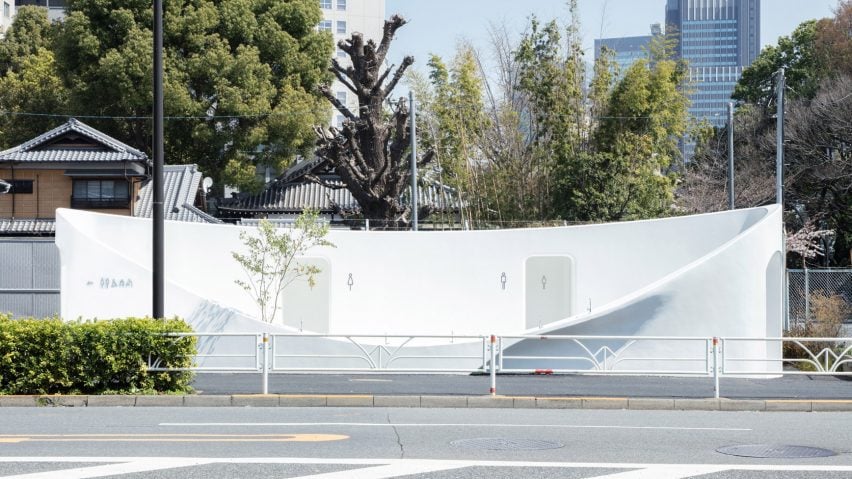
Sou Fujimoto's Tokyo toilet incorporates elongated communal sink
Japanese architect Sou Fujimoto has unveiled a public toilet that incorporates a communal hand-washing basin, as the final instalment of the Tokyo Toilet project.
Replacing a toilet block near the Park Hyatt Tokyo hotel in downtown Tokyo, the Fujimoto-designed structure is the 17th toilet built in the city as part of the Tokyo Toilet project.
It includes toilets designed by Pritzker Architecture Prize winners Toyo Ito, Tadao Ando, Fumihiko Maki and Shigeru Ban.
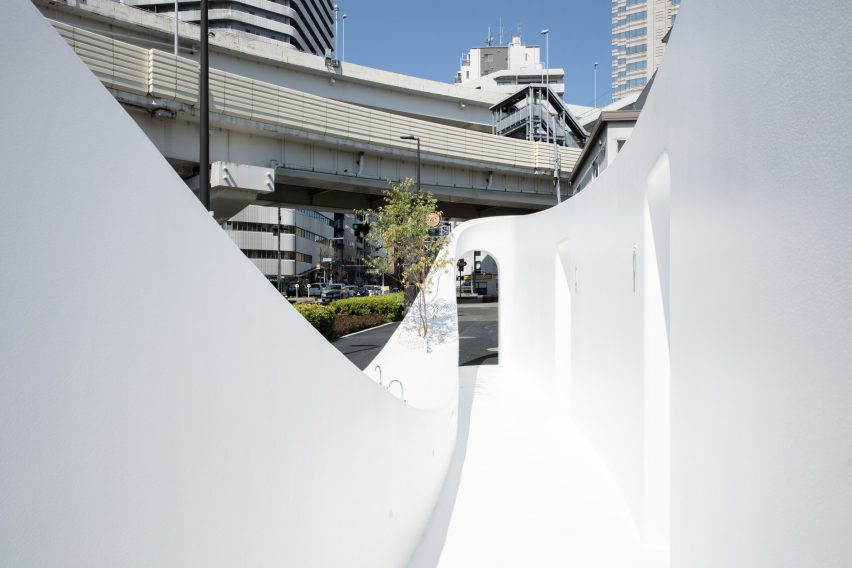
Fujimoto's toilet block was designed to resemble a large sink and incorporates a communal hand-washing area.
"One could say that public toilets are a watering place in the middle of a city, a spring that supplies the town," said the Japanese architect.
"They are available to various people who will use it for different reasons in addition to using the toilet, and I wanted to propose a space for washing hands as a public watering place."
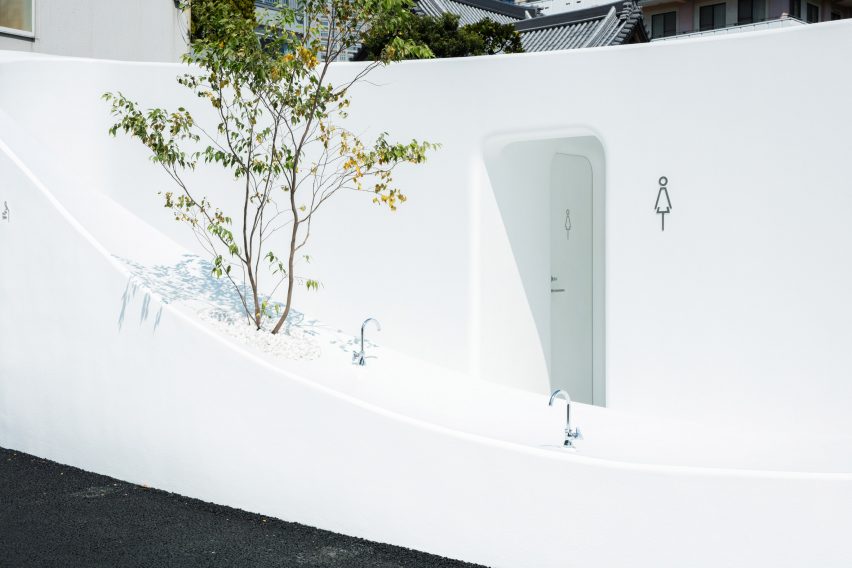
An open-air corridor separates the all-white toilet block from the elliptical basin that has four taps set at different heights.
"It is one vessel that is for everyone," explained Fujimoto.
"The shape, with a large depression in the middle, includes places for people of various heights to wash their hands, so that everyone from children to older people can wash their hands within this vessel, creating a small community of people refreshing themselves and conversing," he added.
"I hope this will be a new kind of public space, where people can gather surrounded by water."
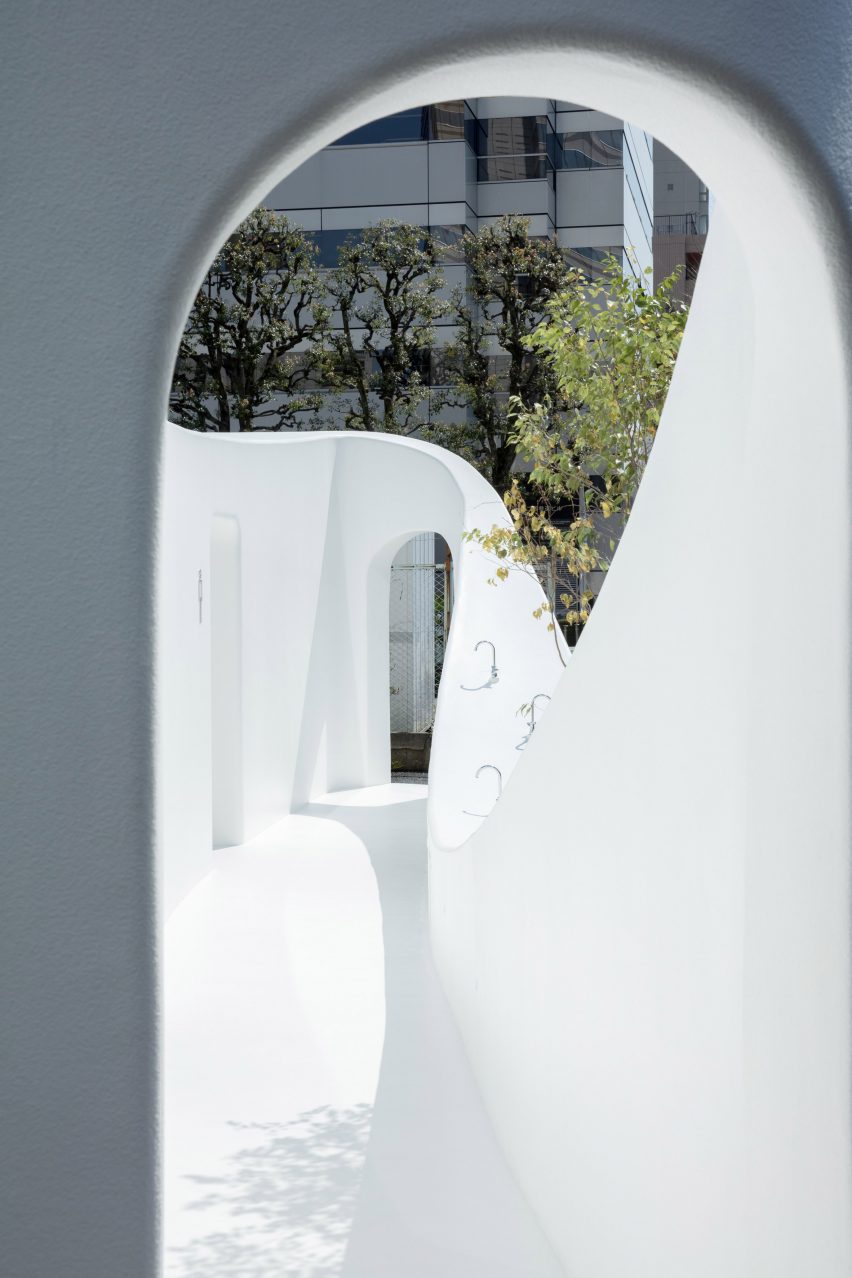
The male and female toilets block are accessed from the open-air corridor, while a disabled toilet and child-changing area has a separate entrance at the end of the building.
As with the exteriors, the toilets' interiors are entirely white with recessed lights positioned around the walls.
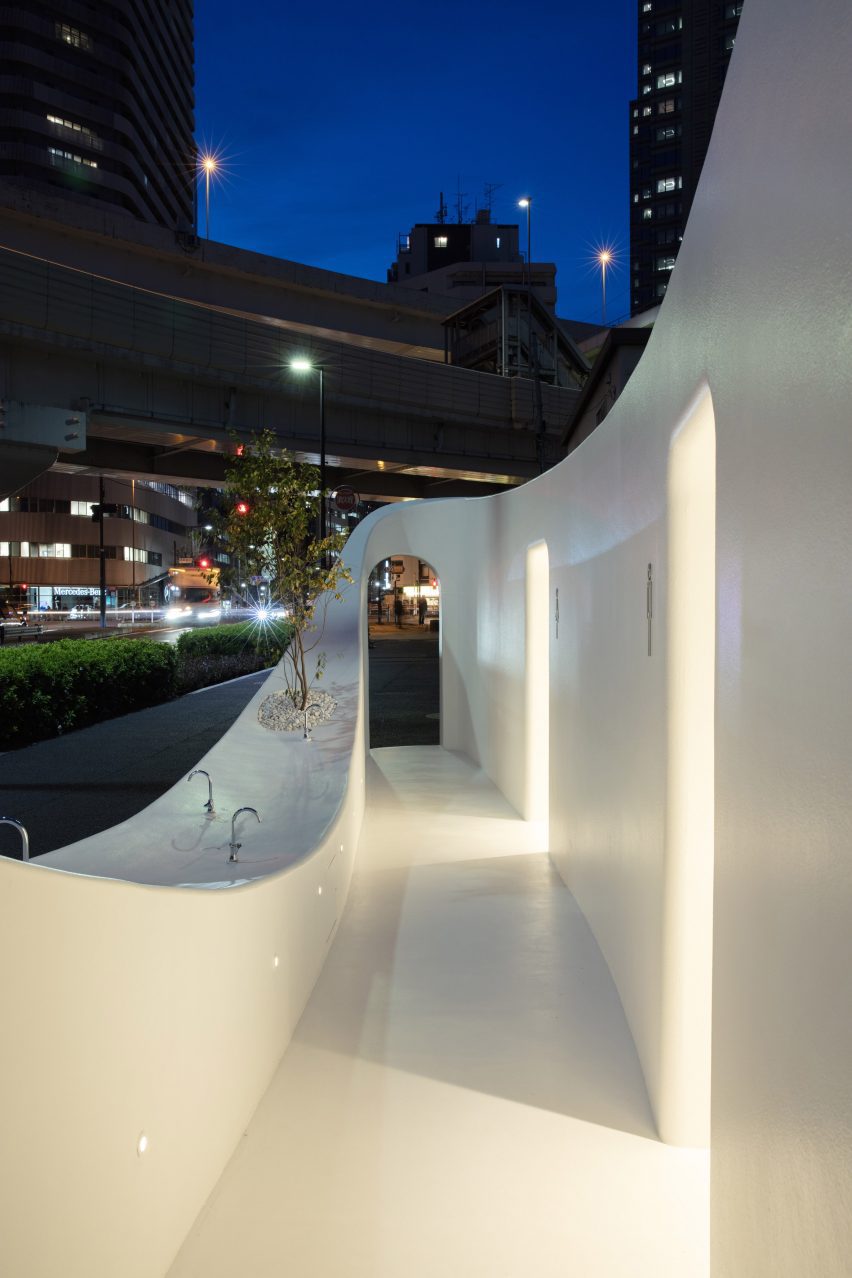
Fujimoto's toilet block is the latest completed as part of the project, which is funded by the Nippon Foundation.
Other toilets include a trio of mushroom-like blocks designed by Ito, a cedar-clad public toilet designed by Kengo Kuma and a pair of transparent blocks designed by Shigeru Ban.
Photography is by Satoshi Nagare for The Nippon Foundation.